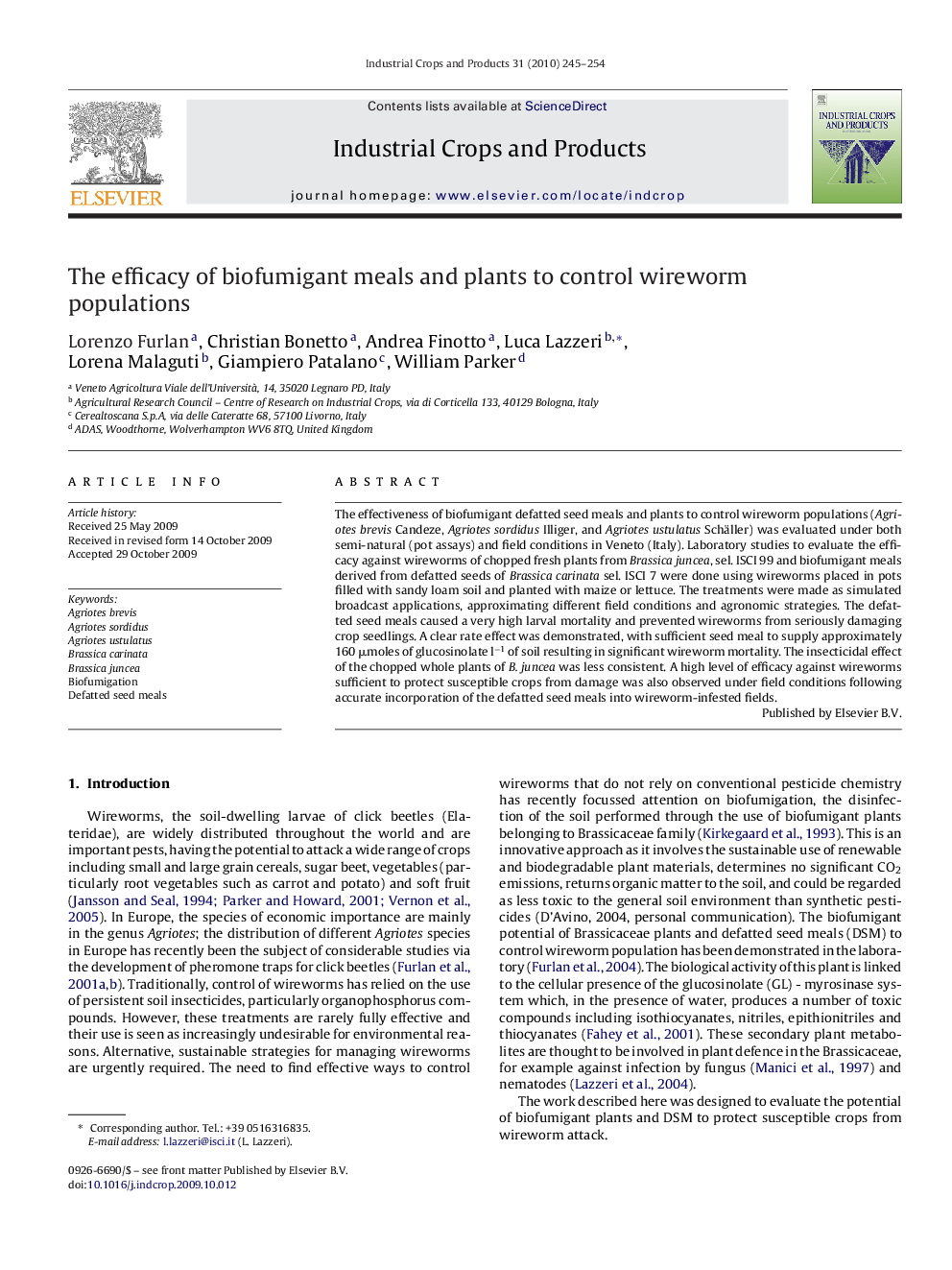| Article ID | Journal | Published Year | Pages | File Type |
|---|---|---|---|---|
| 4514803 | Industrial Crops and Products | 2010 | 10 Pages |
The effectiveness of biofumigant defatted seed meals and plants to control wireworm populations (Agriotes brevis Candeze, Agriotes sordidus Illiger, and Agriotes ustulatus Schäller) was evaluated under both semi-natural (pot assays) and field conditions in Veneto (Italy). Laboratory studies to evaluate the efficacy against wireworms of chopped fresh plants from Brassica juncea, sel. ISCI 99 and biofumigant meals derived from defatted seeds of Brassica carinata sel. ISCI 7 were done using wireworms placed in pots filled with sandy loam soil and planted with maize or lettuce. The treatments were made as simulated broadcast applications, approximating different field conditions and agronomic strategies. The defatted seed meals caused a very high larval mortality and prevented wireworms from seriously damaging crop seedlings. A clear rate effect was demonstrated, with sufficient seed meal to supply approximately 160 μmoles of glucosinolate l−1 of soil resulting in significant wireworm mortality. The insecticidal effect of the chopped whole plants of B. juncea was less consistent. A high level of efficacy against wireworms sufficient to protect susceptible crops from damage was also observed under field conditions following accurate incorporation of the defatted seed meals into wireworm-infested fields.
